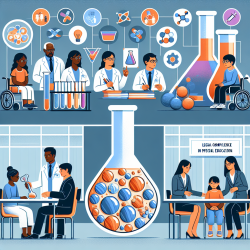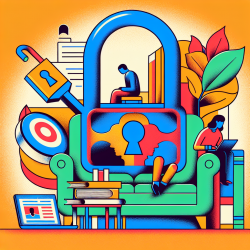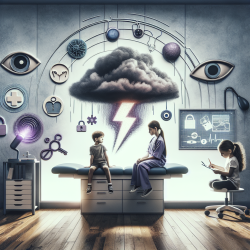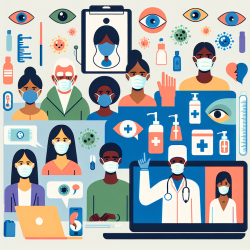The world of pharmaceutical innovation offers valuable insights that can be applied beyond its primary domain, including in the field of special education. The systematic literature review titled "Assessing Definitions and Incentives Adopted for Innovation for Pharmaceutical Products in Five High-Income Countries" provides a detailed examination of how innovation is defined and incentivized across different countries. By understanding these principles, special education practitioners can enhance their approaches to fostering educational advancements.
The Importance of Therapeutic Benefit
The research highlights that the most common dimension of innovation is therapeutic benefit. In pharmaceuticals, this refers to the positive outcomes achieved through new treatments. In special education, therapeutic benefits can be equated to the tangible improvements in student learning and development. Practitioners should focus on interventions that provide clear educational benefits, similar to how new drugs are evaluated for their impact on patient health.
To implement this approach, educators should:
- Regularly assess the effectiveness of teaching methods and interventions.
- Adopt evidence-based practices that have demonstrated significant improvements in student outcomes.
- Collaborate with therapists and specialists to integrate innovative strategies that address specific learning needs.
Navigating Incentives for Innovation
The research also discusses various incentives that drive pharmaceutical innovation, such as exclusivities and financial rewards. In the context of special education, incentives could involve professional development opportunities, grants for innovative teaching projects, or recognition programs for educators who implement successful strategies.
To foster an environment conducive to innovation, school districts might consider:
- Providing funding for pilot programs that explore new teaching methodologies.
- Acknowledging and rewarding educators who contribute to significant improvements in student learning.
- Encouraging partnerships with universities and research institutions to stay abreast of cutting-edge educational research.
The Role of Legal Compliance and Leadership
The pharmaceutical industry must navigate complex regulatory landscapes to ensure compliance while fostering innovation. Similarly, special education requires adherence to legal standards such as the Individuals with Disabilities Education Act (IDEA). Educational leaders play a crucial role in balancing compliance with the pursuit of innovative practices.
This involves:
- Ensuring all educational innovations meet legal requirements and ethical standards.
- Cultivating a culture of continuous improvement where staff feel empowered to propose and test new ideas.
- Liaising with policymakers to advocate for regulations that support innovative educational practices.
Tackling Staffing Shortages with Innovative Solutions
The shortage of therapists is a pressing issue in both pharmaceuticals and special education. The pharmaceutical industry addresses this through strategic partnerships and leveraging technology. Similarly, schools can adopt teletherapy solutions or collaborate with external agencies like TinyEYE to fill gaps in service provision.
This approach can be implemented by:
- Piloting online therapy programs to expand access to services for students with special needs.
- Cultivating partnerships with therapy training programs to create a pipeline of qualified professionals.
- Pursuing grants or funding opportunities aimed at expanding teletherapy capabilities within the district.
The Path Forward: Encouraging Further Research
The systematic literature review concludes by emphasizing the need for harmonization and consensus on what constitutes innovation. This is equally applicable in education, where diverse definitions of success can hinder progress. Practitioners are encouraged to engage in further research and dialogue to develop a unified understanding of educational innovation that can drive meaningful change across districts.










